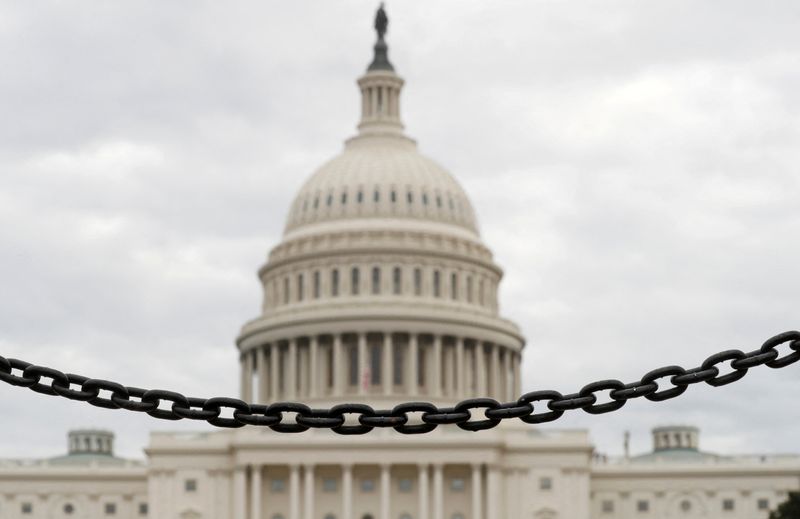[the_ad id="21475"]
[ad_1]
© Reuters. FILE PHOTO: The dome of the U.S. Capitol is seen beyond a chain fence during the partial government shutdown in Washington, U.S., January 8, 2019. REUTERS/Kevin Lamarque/File Photo
(Reuters) – Republicans who control the U.S. House of Representatives say any increase in the United States’ $31.4 trillion debt ceiling should be paired with spending cuts, but so far are not unified on any specific demands.
Here are a few proposals Republicans had floated.
LIMITED DISCRETION
The Republican Study Committee, a group of 165 conservative House Republicans, in an open letter on Wednesday laid out a series of proposals which included imposing legal limits on some discretionary spending and easing regulations on domestic energy production. The group’s proposals contained few specifics.
NO CUTS TO SOCIAL SECURITY AND MEDICARE
McCarthy has said that Republicans will not try to scale back the two largest benefit programs: Social Security, which provides payments to retirees and the disabled; and Medicare, the health insurance program for seniors.
That is a shift from previous budget negotiations, when Republicans suggested raising the retirement age and partially privatizing Medicare.
It also places almost one-third of the budget off limits. Social Security accounted for 17% of federal spending in the 2021 fiscal year, while Medicare accounted for 13%, according to the nonpartisan Congressional Budget Office.
DO NOT CUT DEFENSE
Republicans have traditionally supported robust military spending, and some House lawmakers including Kay Granger and Tom Cole, the heads of the powerful Appropriations and Rules committees, have said that defense cuts should be off the table. That would leave another 11% of the federal budget off limits.
ROLL BACK SPENDING TO 2022
McCarthy has proposed capping annual “discretionary” spending on agencies such as the Defense Department and the Food and Drug Administration at the levels that were in place in the fiscal year that ended Sept. 30, 2022: $782 billion for defense, and $689 billion for domestic programs.
That would amount to a cut of 9% for defense and 7% percent for non-defense programs from the levels in place now, according to CBO estimates. Those cuts would broaden in the years to come as spending would not keep pace with inflation, population growth or the size of the economy.
These cuts would not apply to benefit programs, like federal workers’ pensions and unemployment insurance.
DEEPER CUTS FOR DOMESTIC…
Click Here to Read the Full Original Article at All News…
[ad_2]
[the_ad id="21476"]
